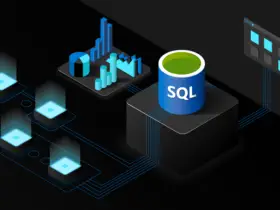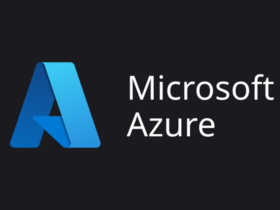

Who is DevOps engineer?
DevOps engineers are a group of influential individuals who encapsulates depth of knowledge and years of hands-on experience around a wide variety of open source technologies and tools. They come with core attributes which involve an ability to code and script, data management skills as well as a strong focus on business outcomes. They are rightly called “Special Forces” who hold core attributes around collaboration, open communication and reaching across functional borders.
DevOps engineer always shows interest and comfort working with frequent, incremental code testing and deployment. With a strong grasp of automation tools, these individuals are expected to move the business quicker and forward, at the same time giving a stronger technology advantage. In nutshell, a DevOps engineer must have a solid interest in scripting and coding, skill in taking care of deployment automation, framework computerization and capacity to deal with the version control system.
Qualities of a DevOps Engineer
Collated below are the characteristics/attributes of the DevOps Engineer.
- Experience in a wide range of open source tools and techniques
- A Broad knowledge on Sysadmin and Ops roles
- Expertise in software coding, testing, and deployment
- Experiences on DevOps Automation tools like Ansible, Puppet, and Chef
- Experience in Continuous Integration, Delivery & Deployment
- Industry-wide experience in implementation of DevOps solutions for team collaborations
- A firm knowledge of the various computer programming languages
- Good awareness in Agile Methodology of Project Management
- A Forward-thinker with an ability to connect the technical and business goals
- Demand for people with DevOps skills is growing rapidly because businesses get great results from DevOps. Organizations using DevOps practices are overwhelmingly high-functioning: They deploy code up to 30 times more frequently than their competitors, and 50 percent fewer of their deployments fail.
What exactly DevOps Engineer do?
DevOps is not a way to get developers doing operational tasks so that you can get rid of the operations team and vice versa. Rather it is a way of working that encourages the Development and Operations teams to work together in a highly collaborative way towards the same goal. In nutshell, DevOps integrates developers and operations team to improve collaboration and productivity.
The main goal of DevOps is not only to increase the product’s quality to a greater extent but also to increase the collaboration of Dev and Ops team as well so that the workflow within the organization becomes smoother & efficient at the same time.

DevOps Engineer has an end-to-end responsibility of the Application (Software) right from gathering the requirement to development, to testing, to infrastructure deployment, to application deployment and finally monitoring & gathering feedback from the end users, then again implementing the changes. These engineers spend more time researching new technologies that will improve efficiency and effectiveness.They Implement highly scalable applications and integrate infrastructure builds with application deployment processes.
Let us spend some time in understanding the list of most important DevOps Engineers’ roles and responsibilities.
1) The first and foremost critical role of a DevOps Engineer is to be an effective communicator i.e Soft Skills. A DevOps Engineer is required to be a bridge between the silos and bring different teams together to work towards a common goal. Hence, you can think of DevOps Engineers as “IT Project Managers”. They typically work on a DevOps team with other professionals in a similar role, each managing their own piece of the infrastructure puzzle.
2) The second critical role of DevOps Engineer is to be Expert Collaborators. This is because their role requires them to build upon the work of their counterparts on the development and IT teams to scale cloud programs, create workflow processes, assign tenants and more.
3) Thirdly, they can be rightly called “Mentors” as they spend most of the time in mentoring and educating software developers and architecture teams within an organization on how to create software that is easily scalable. They also collaborate with IT and security teams to ensure quality releases.
Next, they need to be a “customer-service oriented” individuals. The DevOps Engineer is a customer-service oriented, team player who can emerge from a number of different work and educational backgrounds, but through their experience has developed the right skillset to move into DevOps.
The DevOps Engineer is an important IT team member because they work with an internal customer. This includes QC personnel, software and application developers, project managers and project stakeholders usually from within the same organization. Even though they rarely work with external customers or end-users, but they keep close eye on a “customer first” mindset to satisfy the needs of their internal clients.
Not to miss out, DevOps engineer holds broad knowledge and experience with Infrastructure automation tools. A key element of DevOps is automation. A lot of the manual tasks performed by the more traditional system administrator and engineering roles can be automated by using scripting languages like Python, Ruby, Bash, Shell, Node.js. This ensures a consistent performance of manual tasks by removing the human component and allowing teams to spend the saved time on more of the broader goals of the team and company.
Hence, a DevOps engineer must possess the ability to implement automation technologies and tools at any level, from requirements to development to testing and operations.

Few of other responsibilities of DevOps Engineer include –
- Manage and maintain infrastructure system
- Maintaining and developing highly automated services landscape and open source services
- Take over the ownership for integral components of technology and make sure it grows aligned with company success
- Scale systems and ensure the availability of services with developers on changes to the infrastructure required by new features and products.
How to become a devops engineer?
DevOps is less about doing things a particular way, and more about moving the business forward and giving it a stronger technological advantage. There is not a single cookbook or path to become a devops professional . It’s a continuous learning and consulting process . Every DevOps tasks have been originated from various development , testing , ops team consulting through consultants and running pilots, therefore it’s hard to give a generic playbook for how to get it implemented. Everyone should start with learning about the values, principles, methods, and practices of DevOps and trying to share it via any channel and keep learning.
Here’s my 10 golden tips to become a DevOps Engineer:
1. Develop Your Personal Brand with Community Involvement
2. Get familiar with IaC(Infrastructure-as-Code) – CM
3. Understand DevOps Principles & Frameworks
4. Demonstrate Curiosity & Empathy
5. Get certified on Container Technologies – Docker | Kubernetes| Cloud
6. Get Expert in Public | Private | Hybrid Cloud offering
7. Become an Operations Expert before you even THINK DevOps
8. Get Hands-on with various Linux Distros & Tools
9. Arm Yourself with CI-CD, Automation & Monitoring Tools(Github, Jenkins, Puppet, Ansible etc)
10.Start with Process Re-Engineering and Cross-collaboration within your teams.
Skills that DevOps engineer need to have
If you’re aiming to land a job as a DevOps engineer in 2018, it’s not only about having a deep specialized skill but understanding how a variety of technologies and skills come together.One of the things that makes DevOps both challenging to break into is that you need to be able to write code, and also to work across and integrate different systems and applications. Based on my experience, I have finalized on the list of top 5 skill sets which you might require to be a successful DevOps engineer:
#1 – SysAdmin with Virtualization Experience
Deployment is a major requirement in devops role and ops engineer are good at that , All is needed is a deployments automation engine(chef ,puppet ,ansible) knowledge and its use-cases implementations . Nowadays , most of public clouds are running multiple flavors of virtualization so a must have 3 – 5 years of virtualization experience with VMware, KVM, Xen, Hyper-V is required along .
2 – Solution Architect Role
Along with deployments or virtualization experience, understanding and implementation of all the hardware technologies in breadth is a must like storage and networking. Nowadays there is a very high-demand for people who can design a solution that scales and performs with high availability and uptime with minimal amount of resources to feed on (Max utilization) .
3 – A Passionate Programmer/API Expertise
Bash, Powershell, Perl, Ruby, JavaScript, Go, Python etc are few of popular scripting languages one need to have expertise on to become an effective DevOps Engineer. A DevOps engineer must be able to write code to automated repeatable processes. One need to be familiar with RESTFUL APIs.
4 – Integration Skillset around CI-CD tool
A DevOps engineer should be able to use all his expertise to integrate all the open source tools and technique to create an environment that is fully automated and integrated. The goal should be for zero manual intervention from source code management to deployment state, i.e. Continuous Integration, Continuous Delivery and Continuous Deployment.
5 – Bigger Picture & Customer Focus
While the strong focus on coding chops makes software engineering a natural path to a career in DevOps, the challenge for candidates who are coming from this world is that they need to be able to prove that they can look outside their immediate team and project. DevOps engineers are responsible for facilitating collaboration and communication between the Development and IT teams within an organization, so to succeed in an interview, you’ll need to be able to demonstrate your understanding of how disparate parts of the technical organization fit and work together.
In nutshell, all you need are the list of tools and technologies listed below –
- Source Control (like Git, Bitbucket, Svn, VSTS etc)
- Continuous Integration (like Jenkins, Bamboo, VSTS )
- Infrastructure Automation (like Puppet, Chef, Ansible)
- Deployment Automation & Orchestration (like Jenkins, VSTS, Octopus Deploy)
- Container Concepts (LXD, Docker)
- Orchestration (Kubernetes, Mesos, Swarm)
- Cloud (like AWS, Azure, Google Cloud, Openstack)
What are DevOps certifications available in the market? Are they really useful?
In 2018, DevOps professionals are in huge demand. The demand for DevOps professionals in the current IT marketplace has increased exponentially over the years. A certification in DevOps is a complete win-win scenario, with both the individual professional and the organization as a whole standing to gain from its implementation. Completing a certification in the same will not only provide added value to one’s profile as an IT specialist but also advance career prospects faster than would usually be possible.
The certifications related to DevOps are categorized into
Foundation,
Certified Agile Process Owner &
Certified Agile Service Manager
The introductory DevOps Certification is Foundation and certified individuals are able to execute the concepts and best practices of DevOps and enhance workflow and communication in the enterprise.
Yes, these DevOps certifications hold numerous benefits in the following ways:
1. Better Job Opportunities
DevOps is a relatively new idea in the IT domain with more businesses looking at employing DevOps processes and practices. There is a major gap between the demand for DevOps Certified professionals and the availability of the required DevOps professionals. IT professionals can take advantage of this huge deficit in highly skilled professionals by taking up a certification in DevOps for validation of DevOps skill set. This will ensure and guarantee much better job options.
2. Improved Skills & Knowledge
The core concept of DevOps revolves around brand new decision-making methods and thought processes. DevOps comes with a host of technical and business benefits which upon learning can be implemented in an enterprise. The fundamentals of DevOps consist of professionals working in teams of a cross-functional nature. Such teams consist of multi-disciplinary professionals ranging from business analysts, QA professionals, Operation Engineers, and Developers.
3. Best Salary
Rapid penetration of DevOps best practices in organizations and their implementation in the mentioned organizations is seeing massive hikes in the pay of DevOps professionals.
This trend is seen to be consistent and sustainable according to industry experts the world over. DevOps professionals are the highest paid in the IT industry.
4. Increased Productivity & Effectiveness
Conventional IT workplaces see employees and staff being affected by downtime which can be attributed to waiting for other employees or staff and other software and software related issues. The main objective of an IT professional at the workplace would be to be productive for a larger part of the time he/she will spend at the workplace. This can be achieved by minimizing the time spent waiting for other employees or software products and eliminating the unproductive and unsatisfying part of the work process. This will boost the effectiveness of the work done and will add greatly to the value of the enterprise and the staff as well.


























Leave a Reply